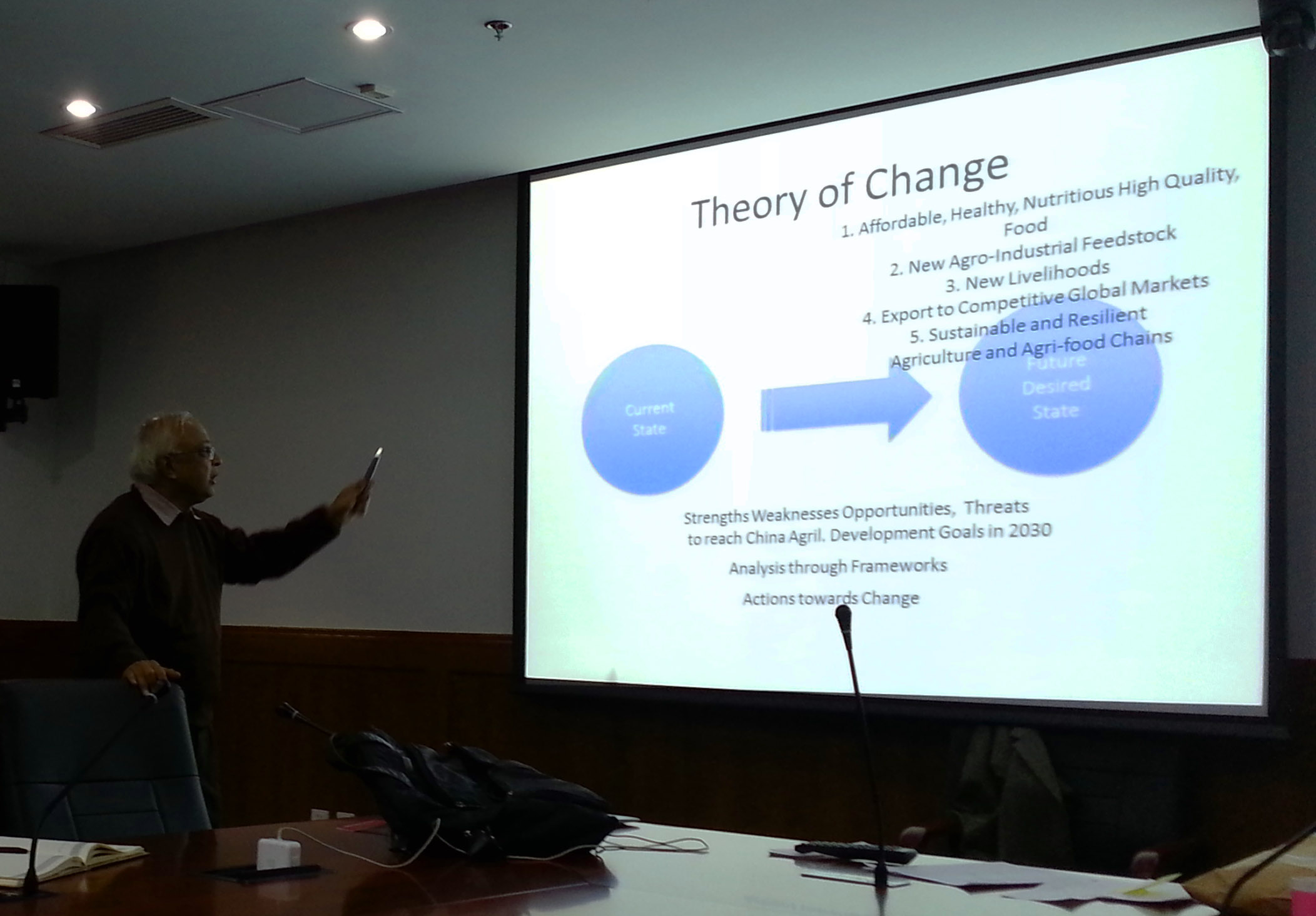
Since its early days, GFAR has placed a large emphasis on strengthening national and regional agricultural information systems. A result of this has been a partnership of over 10 years with the Agricultural Information Institute of the Chinese Academy of Agricultural Sciences (CAAS) to strengthen the information and knowledge management capacities of Chinese institutions active not only in agricultural sciences and research but also in fisheries and forestry. GFAR has joined forces with CAAS regularly in international workshops and conferences and GFAR is a key partner in China’s biannual Global Agricultural Science and Technical Conference (GLAST).
As a founding member of the initiative for Coherence in Information for Agricultural Research for Development (CIARD), GFAR has supported China in setting up its own CIARD movement and its own CIARD RING (Routemap to Information Nodes and Gateways). The aim of CIARD is to make agricultural research information and knowledge accessible to all. The enabler is RING, a web-based registry that directs enquirers to targeted information on agricultural research for development. GFAR provides access to its own information, and to that of its stakeholders and partner organizations, on its website, EGFAR, which also houses the global CIARD registry.
Chinese agricultural and information specialists, who know that the future of Chinese agriculture is crucial to the future of China, invited the GFAR Secretariat to facilitate two agricultural information workshops during November 2014 in China – part of a growing tapestry of collaboration between GFAR and China.
GFAR’s Chinese members are driven by a conviction that, as China’s farming systems transform and are integrated into a knowledge intensive economy, China’s capacities in agricultural knowledge also need to expand. GFAR was thus invited by the Chinese Government to share the Forum’s “ICT for agriculture” experience with the Agricultural Information Institute of CAAS. In November Ajit Maru, from the Secretariat facilitated a 6 day workshop in China with 60 participants. He introduced the group to new concepts, approaches and technologies that could help them improve their knowledge management skills. He helped them develop a range of scenarios for China’s agriculture in 2030 and to pinpoint related information and knowledge needs and tools. He led their consideration of global trends in ICT and how ICT is being applied to benefit agricultural development throughout the world.
Drilling down further, workshop participants looked at commodity, financial and information flows in China’s agri-food chains and considered where ICT could support them. They agreed that to better manage China’s farm information they needed new systems that integrate forecasting capacities, traceability, logistics and financials. They discussed the research needs and technical requirements for such systems - semantic web, Internet of Things, wearable computing, advanced GIS and predictive analysis. They projected customized solutions and became excited about the range of options that these systems could offer Chinese decision makers.
Of course, China is thinking ahead when it comes to agricultural infrastructure and the digital sharing of information anyway. The challenge, however, is to make the multiple agricultural information systems interoperable and to adopt global or national information management standards. Questions of privacy, ownership and security also need to be worked through, not to mention how to facilitate effective use of information in a situation of rapid agricultural change. China will need to consider how it policies, institutions and regulatory mechanisms can be supportive and how to encourage public-private-civil society partnerships.
The workshop participants came up with a set of recommendations to advance China’s agricultural ICT expertise and capacities in research and innovation with the acknowledgement that a Roadmap to strengthen capacities should be developed. GFAR’s CIARD movement and its RING registry have proven to be a valuable resource and, according to the participants, should continue to be the single window for accessing and sharing new information and knowledge. The potential of AgriVIVO, a web-based platform developed in 2013 by GFAR, FAO and Cornell University to store and manage information about people, organizations and events in agriculture, was highlighted. India’s development of an “Agropedia” for global or country-specific use was also of interest.
Meanwhile, during his trip to China, Ajit was also a keynote speaker at the 5th CIARD training workshop on open access to knowledge for South and South East China. Organized by the Fujian Academy of Agricultural Sciences, in collaboration with the CAAS Agricultural Information Institute, GFAR, FAO and CIARD, the workshop was attended by 30 information professionals. Discussions and presentations examined examples of ICT application, promotion of open access to agricultural information in other countries, and showing how Chinese services could benefit from such an approach.
The Fujian workshop marked the end of a planned program of advocacy and capacity development for CIARD and RING in China and saw several provincial agricultural institutions register their information services on the RING. While the program has registered strong interest and uptake, there are still challenges remaining. The Agricultural Information Institute is interested in continuing the partnership and seeking support from GFAR, FAO and CIARD to enable the international collaboration that tackling these challenges will require.
